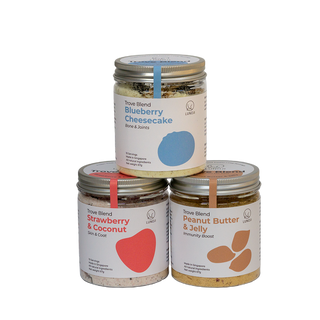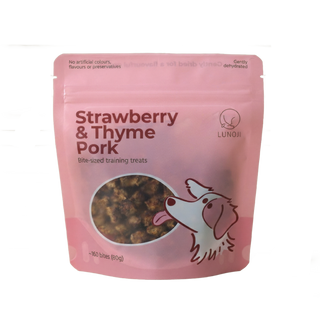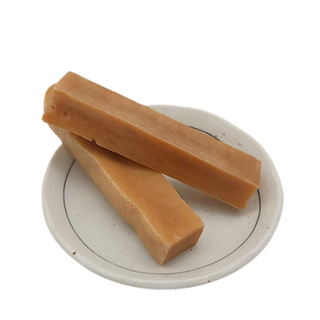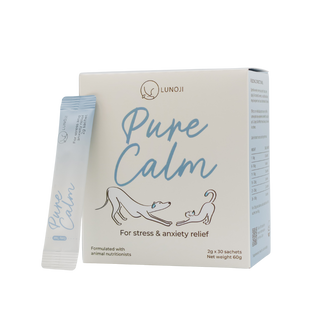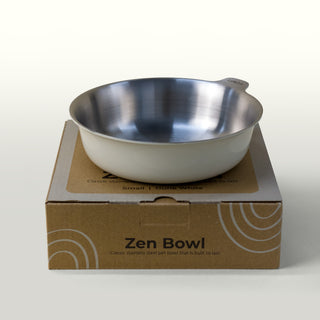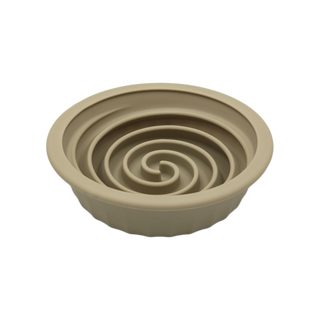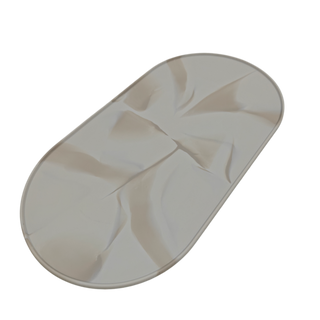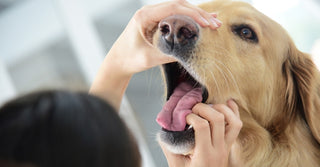
Choking and blockages in pet dogs are more common than you might think.
You might think that this is a rare incident. But believe me, I see such patients almost every other day. With cheap and uncertified dog chews readily available, choking incidents have been proliferating. Not only that, but some chews also lead to intestinal blockage, dental trauma, and severe medical complications resulting from toxic chemicals in dog chews.
With such incidents on the rise, the question that comes to our minds is, how can we prevent such accidents from happening? The answer is simple – education! As vets, we believe it is our responsibility to help guide dog owners at every phase of their pup’s life.
Here, we will briefly discuss a range of dog chews. Knowing more about what's available will help you choose the most suitable safe and longest lasting dog chew for your pet. Continue reading to find out more.
Are chews even worth it for my dog?
With these incidents happening, as dog owners, you might question whether dog chews are beneficial enough for us to put up with the safety risks. Well, it can be a debate, but as professionals, we believe dog chews to be highly beneficial for your pet, and here is why;
- The chewing action helps remove the debris and bacteria from the teeth and gums of your dogs. This prevents the development of plaque and tartar and keeps your dog’s breath fresh and healthy.
- Chewing is also a therapeutic activity that helps dogs relax when anxious or stressed. Chewing on a safe dog chew allows them to ease those feelings and keep them calm and relaxed.
- Like human babies, puppies also suffer from teething itch and pain. Smooth and light textured dog chews help to relieve the pain and anxiety, promoting healthy and strong teeth.
- Chewing requires a lot of focus and energy from your dog. This is a great form of mental stimulation, and as important as physical exercise for their overall wellbeing.

Chewing is a natural behavior for dogs and can contribute to a healthy and well-behaved dog
Different types of dog chews
There are various safe dog chews available in the market, and you should prefer long lasting dog chews. Depending on your dogs’ behaviour, needs, and personal preference, you can choose the one that best suits their needs. Here are few of the best dog chews I would recommend.
1. Dental chew
As a vet, I would typically recommend dental chews, especially if your dog has unhealthy gums and teeth, or excess plaque and tartar build-up. Since they are specifically designed for dogs, many come with a texture designed to reach deep into the gum-lines. This helps scrub the teeth to remove bacteria build-up and debris. Plus, the soft chewing action gently massages the gums to promote blood flow in the area to keep the gums healthy and clean.
These dental dog chews often come with familiar scents - such as mint - that keep your dog’s breath fresh all day long (for us humans!). However, the downside is that many of these chews do not last long enough for your dog to get any benefit. Try using various toys together with these chews to ensure that they keep your pup working for them for a longer period of time.
2. Dried meats & tendons

Dried meat chews are another great option, widely available in the market for puppies and older dogs. They contain on average 60% of protein which helps boost the meat content of your dog’s diet. They are perfect for dogs with allergies as you can easily find ones prepared using 100% meat, with no additional ingredients. They can be one of the safest dog chews because they are highly digestible, so you don't have to worry about intestinal blockage.
On the flip side, be careful as many of these can stain your carpets or bedding so keep chewing to outside or in a fixed area. Bully sticks (or pizzle sticks) are also notorious for causing dogs to choke or cause blockage so provide under close supervision and remove them once they can be swallowed whole.
3. Dried ears
The natural texture and taste of dried ears can be irresistible for dogs. Naturally, pig and cow ears are baked and dried to add a crispy texture while keeping the desirable taste locked in. Cow ears can be a perfect lower-calorie option for dogs, while pig ears are typically higher in fat content, making them greasier and smellier to handle.
Regardless, their natural taste and content make them relatively safe and healthy for your dogs. If your dog has plaque built up between the teeth, we suggest you go with beef ears as they are more likely to get into the small spaces in your dog’s mouth. Be prepared for bits and pieces of ear crumbs and some grease on the carpet or floor!
4. Rawhide

Rawhide may be cheap and found everywhere, but most vets don't recommend them.
Rawhides are very popular among dog owners given their low price and long-lasting chew-time. But as a vet, I wouldn’t recommend them for your dogs as their regular usage can lead to obesity (yes they do contain calories!). Not only that, but when chewed on, a messy layer of slime forms on its relatively smooth surface. They become more appealing to swallow, which leads to choking or blockages in many cases. When dried, the slime can also tangle fur and become difficult to remove, so if you insist on them, make sure to monitor closely and clean up thoroughly after.
5. Antlers & hooves
In terms of durability, antlers and hooves are one of the longest lasting dog chews in the market. They contain a natural blend of minerals like chondroitin sulphate, which is highly beneficial for your dog’s bones.
However, the issue with antlers is that they are incredibly hard and can fracture or chip teeth if you have an aggressive chewer. So if you do choose to provide them, it is best to monitor your dog closely for the entire duration.
6. Himalayan yak cheese
Recently gaining huge popularity, yak cheese is generally digestible, natural, and safe for dogs to consume. We find that dogs either really love them or wouldn't touch them. It’s delicious taste and hard texture makes it perfect for hours of chewing. Although high in calories, they can be considered relatively healthy when given in moderation as they do typically take a longer time to be consumed compared to some other dog chews (I hope you've trained your dog well to drop their chews on command!).
However, like bully sticks, as they wear down in size, the risk for your dog increases. So, make sure to use a secure chew holder or remove them when they get small enough for your dog to swallow as a whole.
7. Raw meaty bones
Highly debated amongst the veterinary community, raw bones in my opinion can be highly dangerous if you aren't very clued up in this area. I believe this is the reason why many vets simply recommend that owners steer clear from feeding bones altogether regardless of whether they are cooked or raw (cooked is a huge no-no).

Raw bones can be great for chewing and dental health, but be prepared to do your homework and deal with mess.
It would take more than an entire article to cover all factors to consider such as handling, storage, size, cuts, as well as where and how they are fed to your dog that could lead to danger posed to both pets and humans (especially immunocompromised such as the ill, young children and the elderly). If executed properly, raw bones can be one of the best chews for your dog, so do your proper research if this is your definite choice.
8. Synthetic chews
There are various synthetic chews available in the market as well. After handling multiple cases of choking and intestinal blockage, I personally believe that some appropriately sized synthetic dog chews can be confer great chewing benefits for dogs with little risks. The main challenge is in getting your dog interested enough to chew on them as understandably they are less attractive than natural pungent-smelling chews.
Regardless, within this category we do suggest that you avoid rope chews as these can be highly dangerous for your dogs due to the way strands can come off as 'linear foreign bodies' (I'll spare you the science here).
Final Words
We covered some of the chews that can be readily found to help satisfy the chewing urge of our pooches. We all know dogs love to chew. If it is not a long-lasting dog chew, then something else will soon take its place. So why put your shoes, furniture, and cushions at risk of destruction when you can get healthy, natural, and affordable dog chews for your buddy.

One way or another, your dog will satisfy his/her urge to chew.
There are many benefits to be had from chews, but to avoid emergency trips to your local veterinarian, it is best to take your time when choosing a dog chew. Make sure that the chew you are getting is safe and suitable for your dog based on his size, breed, and chewing behaviour. Always opt for dog chews from reliable sources with ingredients that you can understand, or better still, single ingredient natural dog chews.
Additionally look at how you can provide them so that they take their time to chew. For example, give chews only after meals so they are less prone to attempting to fill their stomachs with an unchewed bone. You can also use various chew holders available like CHEWDEN that can make it an overall better experience for both you and your dog.











